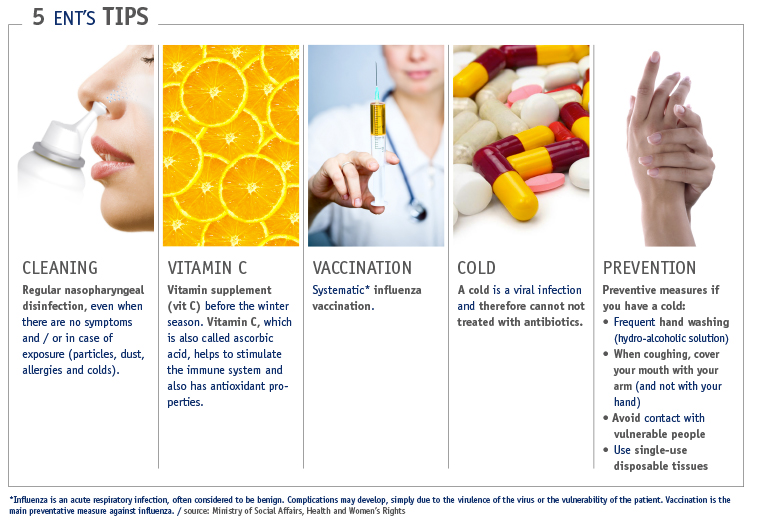
- Its main role is to filter dust and particles from inhaled air using continuously secreted nasal mucus
- Another function is to “condition” the air by warming and humidifying it through rubbing and turbulence created by the turbinates in the nasal fossae, which therefore act as a filter and flow regulator
- An essential anti-infectious action using 2 mechanisms: Collection of infectious agents by the mucus, drained towards the rhinopharynx then swallowed, a direct anti-infectious action by lytic enzymes and surface antibodies (IgA) that “neutralise” micro-organisms
- An olfactory sensory function situated at the olfactory cleft.
Regular nasal hygiene is and will become a necessity, in light of the increase in pollution and community living.
This hygiene, carried out by regular washing with seawater makes it possible to remove particles collected by the nasal mucosa and filtered by the nose, as well as allergens responsible for nasal congestion (obstruction) and drainage.
In addition this washing strengthens local nasal immunity by providing supplementary trace elements which thereby contributes to minimizing the risk of nasopharyngeal infection.
Washing should ideally be done in the morning or at night and before blowing your nose. It is done one side at a time with the head held upright for adults and lying on the side for children (start with the “uppermost” side)
In order to optimise the products effectiveness, it comes in pressurised containers which smoothly and safely diffuse these droplets of salt water on the mucosa of the nasal fossae when light pressure is applied.
Blowing your nose is thereby more effective and less damaging.
In case of a nasopharyngeal infection, these rinses can be carried out several times per day with a hypertonic saline solution which has a stronger decongestant power on the nasal mucosa.